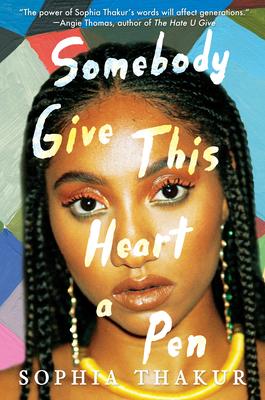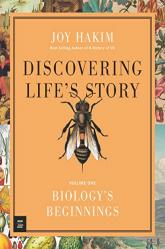Somebody Give this Heart a Pen by Sophyia Thakur is a collection of emotional poetry describing certain events and obstacles that the narrator had to overcome throughout her lifetime. The book is split into several sections; the process, grow, wait, break, and grow again. I found this setup to be quite clever because these categories helped me understand the narrator's struggles and I believe that by using these subtitles, the author is conveying the idea of how life works exactly like this cycle, and through perseverance, you can get through it. At first, I personally found the beginning of the story to be a little bit hard to follow and sometimes difficult to read, as there were a lot of metaphors that I couldn’t always decipher. However, as I progressed through the book, I began to get the hang of interpreting the poems and had a better understanding of what the narrator may be going through. I especially enjoyed the second half of the book in which the poetry displayed an abstract view of rejection and how that affected her as a character. I thought that the author’s use of language during that specific portion of the text (especially in the poem titled ‘fidgeting’) was perfect for describing the aftereffects of a relationship. Overall, I’d recommend this book for more mature audiences, as the writing was a little bit too abstract for me, however I do appreciate how each poem is cleverly unique to each other and filled with emotion. I would rate this book 3 stars out of 5.

About This Book
From acclaimed performance poet Sophia Thakur comes a powerful new collection of poems exploring issues of identity, difference, perseverance, relationships, fear, loss and joy. The collection is arranged as life is: from youth to school, to home life, falling in love and falling straight back out again. The poems draw on the author’s experience as a young mixed-race young woman trying to make sense of a lonely and complicated world. With a strong narrative voice and emotional empathy, this is poetry that will resonate with all young people, whatever their background, and whatever their dreams. As she says, she hopes the poems will help readers "grow through what they go through".
Reviews
Anonymous
Somebody Give this Heart a Pen by Sophyia Thakur
Anonymous
'Somebody Give This Heart a Pen' by Sophia Thakur
‘Somebody Give This Heart a Pen’ by Sophia Thakur is a short collection of coming-of-age poetry. It centers on identity, love (both romantic and familial), politics, morality, and purpose. The poetry is organized in different sections, each one titled with one-word descriptions. These could be interpreted as labels for the basic stages everyone goes through as they grow up. Each page starting the new section is decorated with a poem surrounding the word of the title, which gives a good thematic introduction for the section while also being aesthetically pleasing. The exploration of identity is most interesting in this collection, as the author is a mixed-race woman and her perspective is somewhat unique. Her poetry diverges from classic coming-of-age stories, as she makes evaluations about individuals not just through personal experience, but also through acknowledgements and analysis of various historical events and cultural phenomena. It feels like an educational read as a result; readers are inspired to look into the references brought up if they’re not completely explained by Thakur herself. Though some may argue this isn’t best for a poetry book, I believe it still fits a cohesive tone while feeling fresh and unique. However, many of the poems in this collection, especially those using repetition and italics or bolds to emphasize certain phrases, seem as though they’d be better suited for spoken-word performance, and carry very little weight strictly in written form. I’d definitely recommend listening to Sophia Thakur’s performances over reading this collection. The more wordy and referential poetry in this collection does fit the book’s format, though. Overall, Thakur’s spiritual language and grand ideas make for a very attention-captivating and somewhat transcendental read.







